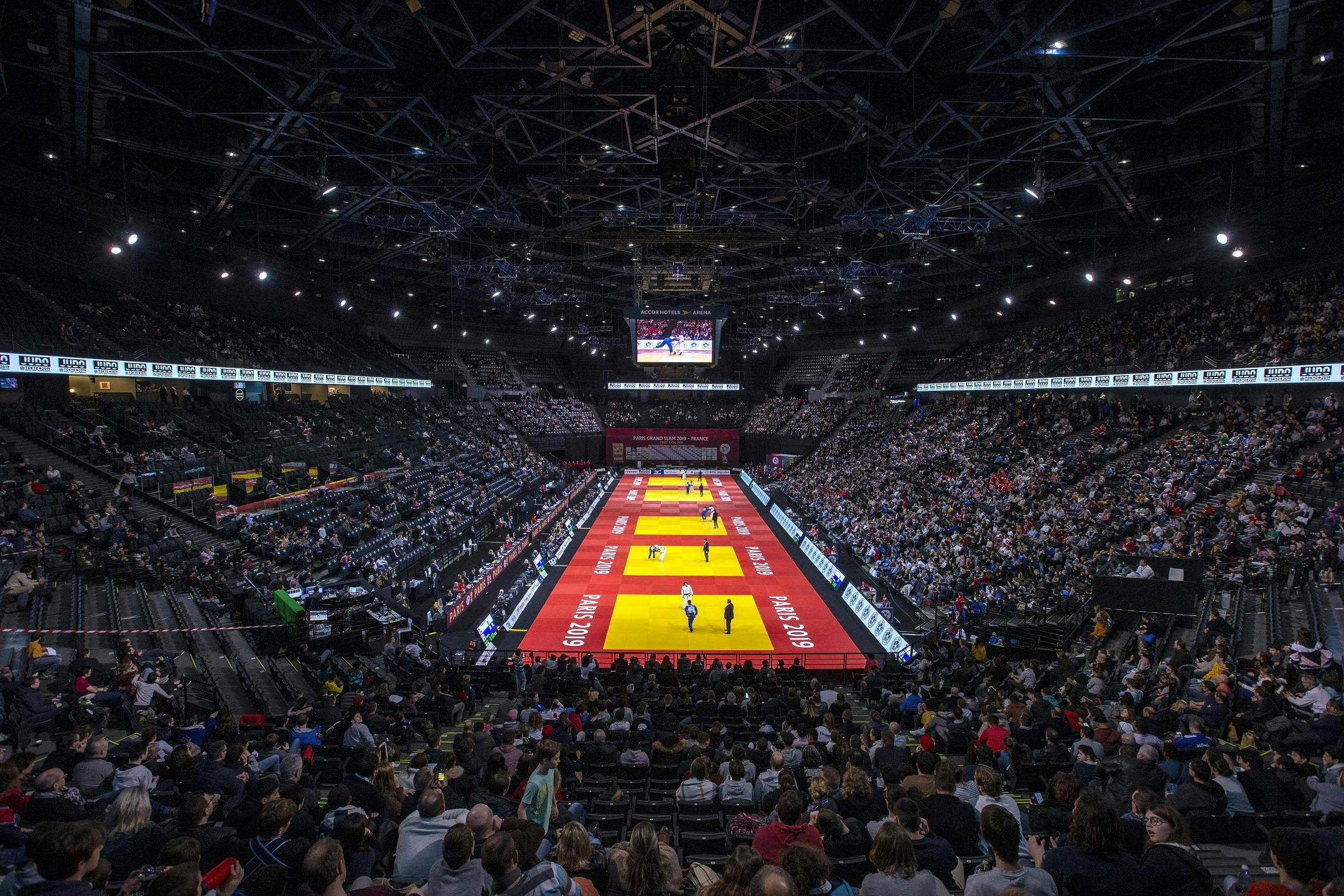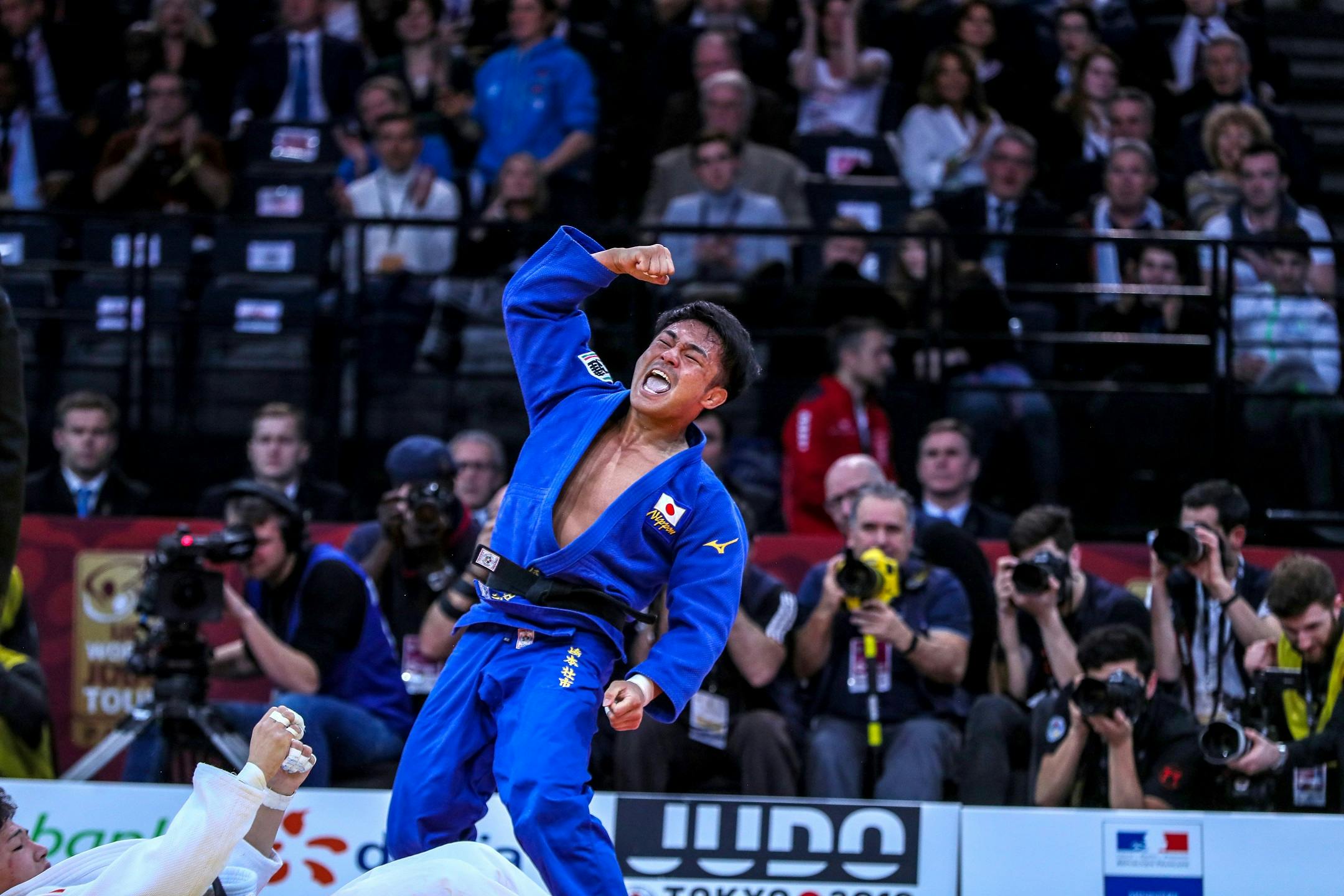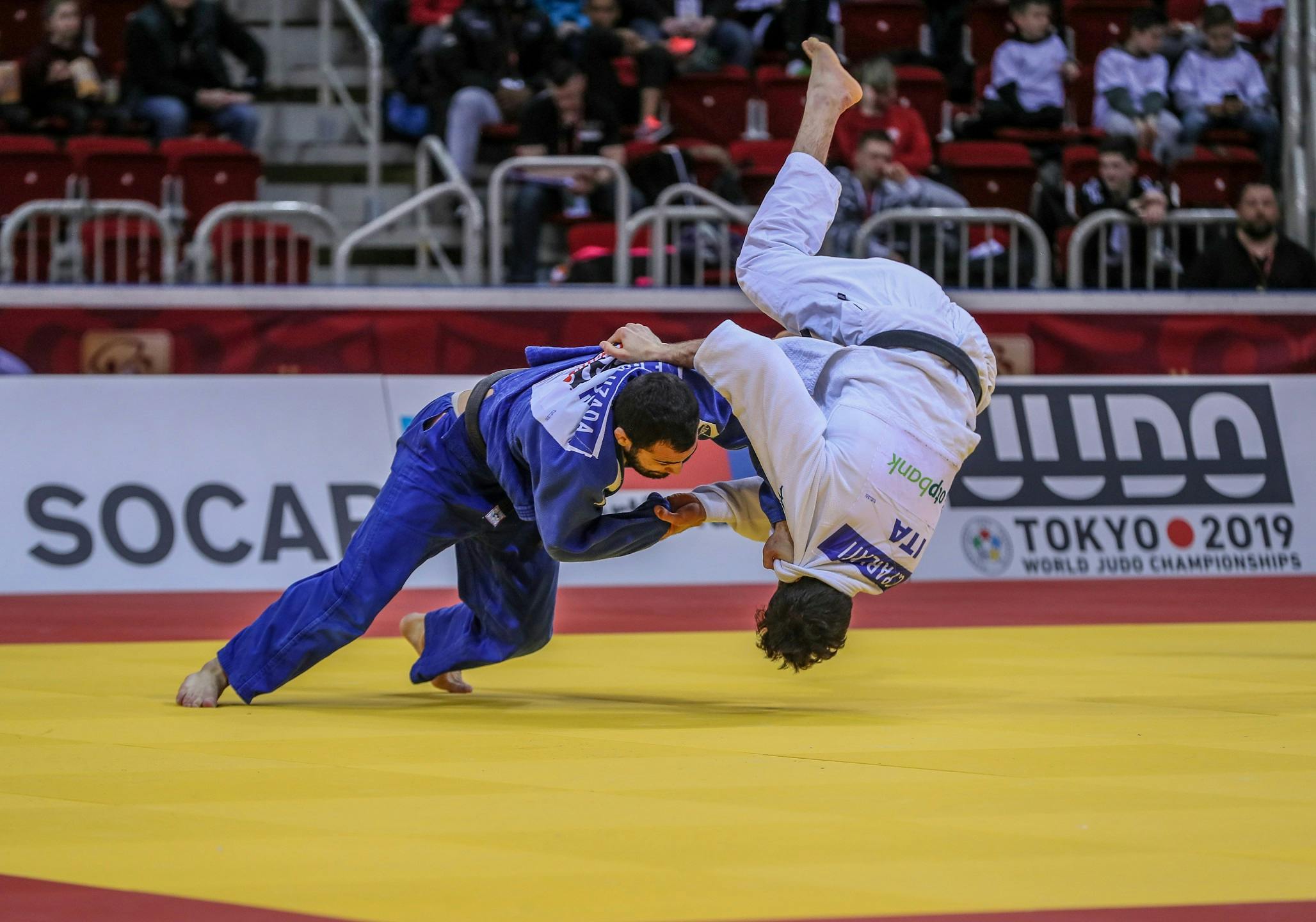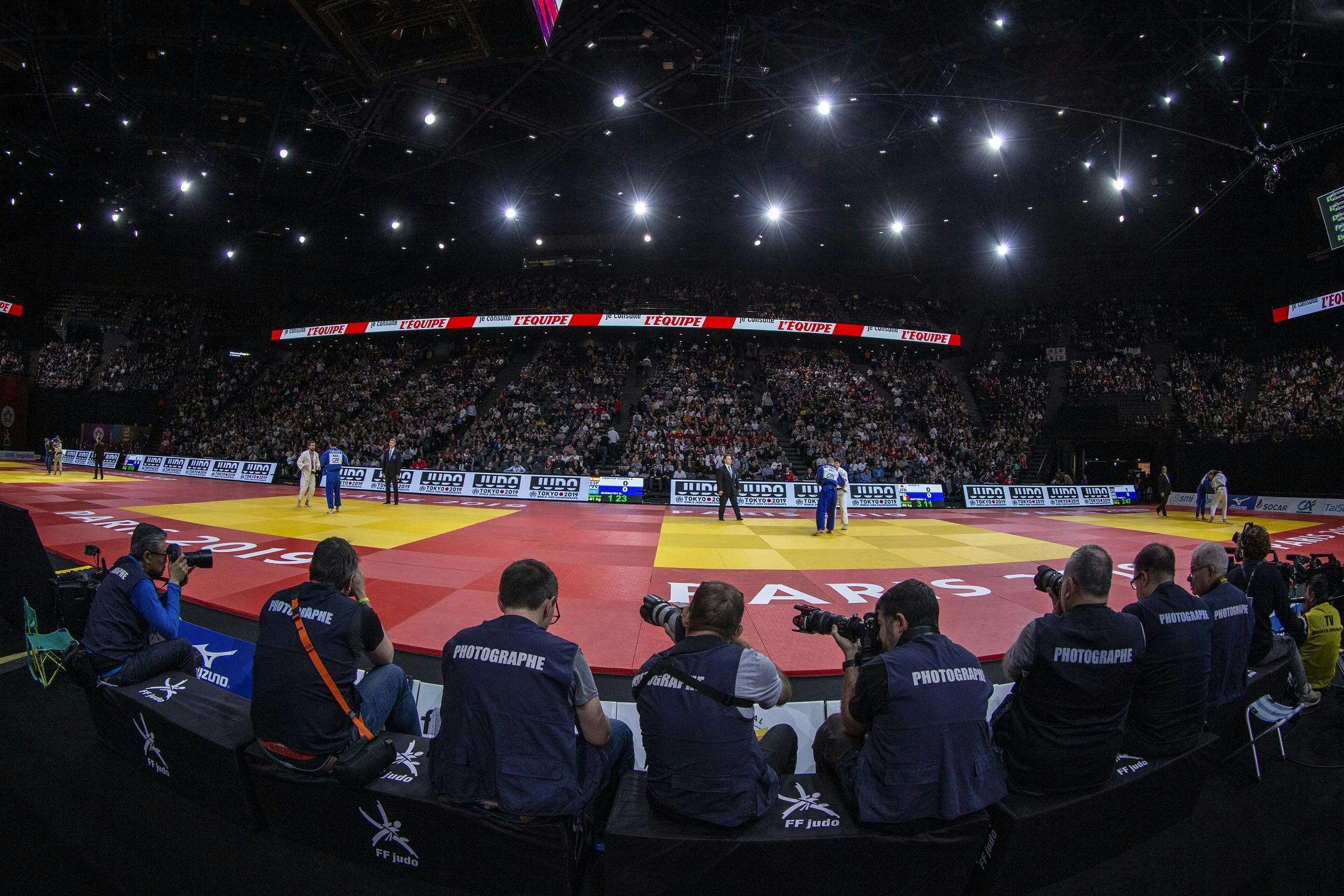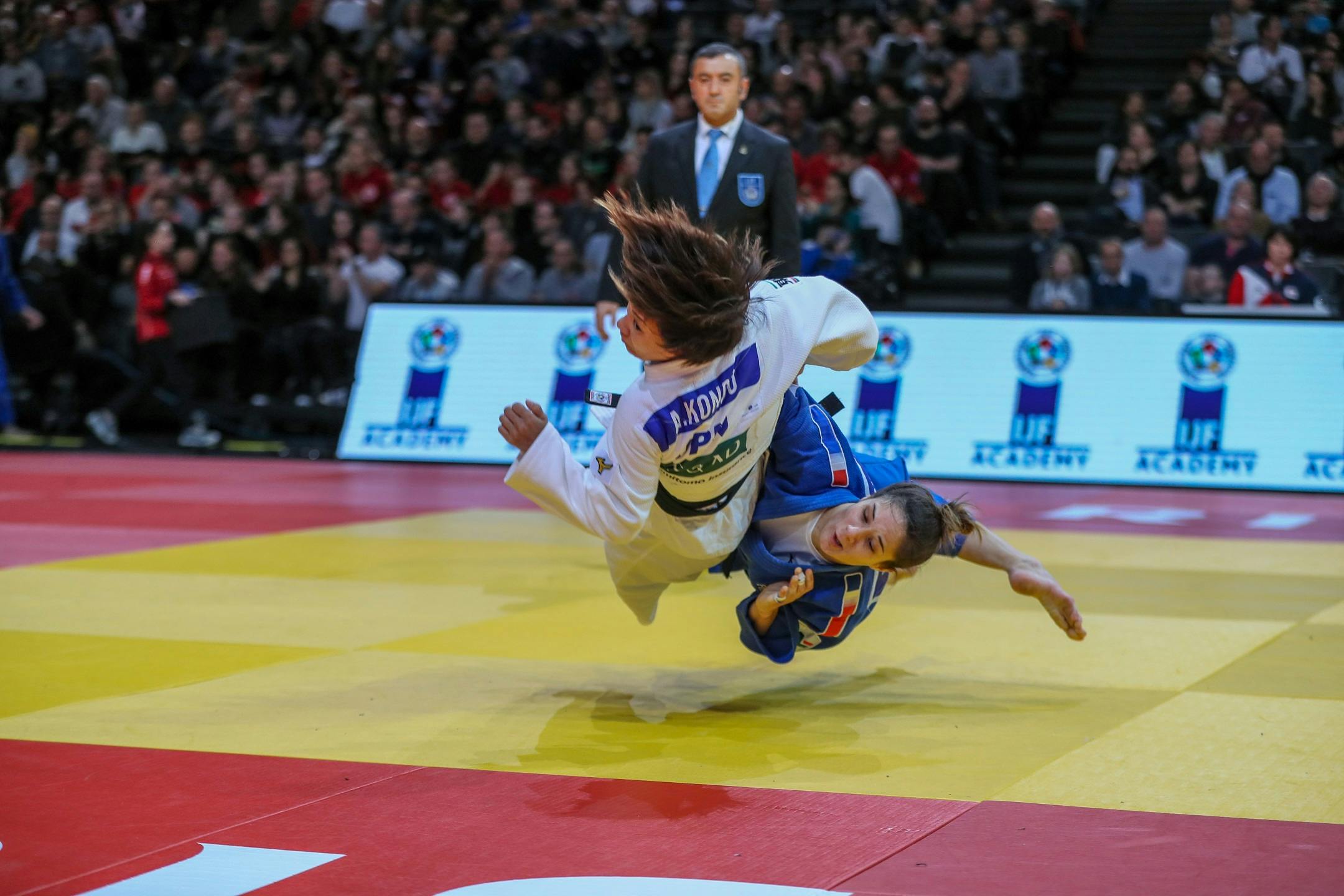All roads are leading to Tokyo in judo, with the World Judo Tour providing an enticing taste of the action to come at the 2019 World Judo Championships at the 2020 Olympic Games in the Japanese capital.
With the International Judo Federation’s (IJF) groundbreaking opening Grand Prix of the year in Tel Aviv setting the tone, spectators have flocked to events on the World Judo Tour, with the line-up of competitors demonstrating the global appetite for the sport.
A total of 53 nations and 373 athletes were represented at the season-opening event, with Israel elevated to Grant Prix event-hosting status for the first time this year, having already successfully staged continental championships and produced a number of the sport’s top athletes since the early 1990s.
Grand Slams followed in Paris and then Düsseldorf in February, with 97 countries and 570 athletes participating in France before 93 nations and a season-high 603 competitors took part in the German event.
Schedule
With a total of 10 destinations on the Grand Prix calendar this year, as well as six Grand Slam events, the World Championships from August 25-31 and then the Shenzhen Masters in China from December 13-15, the early indications are that the packed 2019 World Judo Tour calendar is proving irresistible to judokas and fans alike.
“So far, the World Judo Tour has been a real success,” IJF media director Nicolas Messner says. “From the Tel Aviv Grand Prix, which was introduced for the very first time in January, through to the Ekaterinburg Grand Slam in Russia in March, all of the events have attracted the best judo players in the world.”
At the heart of the sky-high interest is the knowledge that there will be multiple opportunities to qualify for the Olympics, thereby providing an added incentive to participants on the 2019 World Judo Tour.
“The level of judo has been particularly high as all nations are trying to qualify as many competitors as possible to Tokyo 2020,” Messner says. “This period of time is crucial for everyone and every single point gained at one of these events can make the difference a few months from now, when the final list of qualified athletes will be released.
“From a spectator perspective, all events have also been great successes. Of course, the Paris Grand Slam always attracts thousands of judo fans – and the AccorHotels Arena in Paris is the place to be – but the atmosphere in Tel Aviv and Düsseldorf was also incredible.”
With two of the sport’s biggest events taking place in Tokyo over the next 16 months, judo is preparing to return to its roots.
Roots
Japan was not only judo’s birthplace, but the sport also made its Olympic debut at Tokyo’s previous edition of the Games in 1964. The Nippon Budokan, which hosted the sport’s introduction to the Games 55 years ago, will set the stage again for the 2019 World Championships and the Olympics’ judo competition next year.
The World Judo Championships – the biggest judo gathering of the year – will also stoke interest ahead of the Olympics. Tokyo hosted the first two editions of the Championships in 1956 and 1958.
The Japanese cities of Chiba and Osaka staged the Championships before they returned to Tokyo in 2010, the most recent edition to take place in the country, with Tokyo also having hosted an annual IJF Grand Slam Series event for men since 2006 and women since 2007.
As the IJF continues to work closely with the All Japan Judo Federation and the Kodokan Judo Institute – which was established by the sport’s founding father, Jigoro Kano, nearly 140 years ago – the prospect of a capacity crowd at the Nippon Budokan is whetting the appetite for followers of the sport.
“From an organisational point of view, going to Japan always guarantees a very professional approach and a beautiful event,” Messner says.
“The All Japan Judo Federation, together with the Kodokan, are doing everything possible to host the best events. In Tokyo, we have a yearly Grand Slam, which is already one of the biggest and toughest events of the calendar, but with this year’s World Championships and next year’s Olympic Games, we are about to reach a new level.
“Knowing that the World Championships in 2019 will serve as the test event for the Games in 2020 adds a bit of pressure, but in a very good way, and we are confident that the competition will be outstanding.
“Going to Japan, where judo was born before spreading all over the world, is a dream come true for all of the athletes and organisers, especially as the event will take place in the same venue where judo made its first appearance at the Olympic Games. From a media perspective, that will definitely attract more media than we never had before.”
Heritage
Looking ahead to Tokyo 2020, the eyes of the world will be on a multitude of sports converging on the Japanese capital. However, thanks to its special relationship with the city, judo is looking forward to a truly unique experience as sports fans across the world watch on.
Additionally, beyond the undeniable heritage of the sport in Japan and the links between judo and Japanese culture, there are numerous intriguing story angles that will be explored when the competition gets underway.
“Judo has the great chance to ‘come back’ to Japan, where the sport was invented in 1882 by Jigoro Kano. The Kodokan institute will serve as the training venue and the Nippon Budokan will host the competition. This is incredible for our sport and it will for sure put the focus on judo during the Games,” Messner adds.
“Judo is always a popular sport during the Olympic Games as it offers opportunities for many countries to shine under the Olympic spotlight. There are many questions that will be answered in Tokyo in 2020. Will Japan be unbeatable on their home soil? Will Teddy Riner, the 10-time world champion and two-time Olympic champion, win a third title? Will Majlinda Kelmendi win a second title for Kosovo? So many other questions will also offer judo incredible exposure.”
Changes
Those who have not had a chance to watch judo since the Rio 2016 Olympics may notice that the sport itself has undergone some changes, with the IJF focusing on efforts to enhance the dynamism of the sport.
Some of the most significant developments since the Games nearly three years ago have seen an equalisation of contest time for men and women, as well as changes to the scoring system designed to encourage contests to be decided by technical prowess, and especially the ippon score, rather than penalties.
However, whilst some of the changes may offer a new and exciting experience for occasional viewers and spectators of the sport, the alterations have already been fully integrated into the IJF’s events and adopted by judo’s leading stars.
“The changes in regulation were made after Rio and have been implemented since then and used throughout the qualification process. The decisions that were made after Rio Olympics were the consequence of the permanent evaluation that the IJF is carrying out into the evolution of the sport. They were accepted, understood, and have already been in action for several years,” Messner says.
However, the carefully-crafted presentation of judo at Tokyo 2020 promises to add to the appeal for regular, occasional and new followers of the sport.
“From a visual perspective, new colours will be used for the tatami in order to make judo even more understandable, dynamic and spectacular,” he adds.
Expectations
The goal is not only to fulfil the expectations of the sport’s diehard fans, but also to develop new pockets of support worldwide and expose judo to a whole new generation of viewers, spectators and, ultimately, participants.
“Our federation is very active on the communications and media front,” Messner says. “With the World Judo Tour we now have a circuit with at least one or two events per month. It’s easy and fun to follow for judo fans and they can identify themselves with champions coming from all over the globe. They can follow the Road to Tokyo 2020 and we have created a special series of articles and videos that are all related to that specific journey.
“Our website was revamped in 2018 and it is now in full swing, offering all kinds of content for judo lovers and the media. Of course, we are focusing a lot on the circuit, but we also emphasise the values that judo offers and are included in the moral code of our sport.
“We don’t have on one side the sports aspect and on the other side the educational aspect. We create bridges between all the sectors, so everyone can find what they like. With more than 40 million people practicing our sport, plus all of their relatives and friends, we have a massive potential to reach out to sports fans.”
The IJF is seeking to leverage the sport’s major stars, events and contests to engage youngsters in judo and its core values by working with more than 200 national associations worldwide, whilst engaging new generations via social media and other channels.
“Judo is fun and offers great opportunities for people to meet, learn values and enjoy being in the judo family,” Messner says. “Whether you become a champion or don’t, for sure you will be different after you have practiced the sport. Judo is a way of life.
“Those are the main messages we want to deliver to the youth. Young people are very much connected to social media and that is one of the reasons why the IJF is active on those platforms. We are working with all of the national federations to propose programmes that attract the youth and give them chances in life.”
